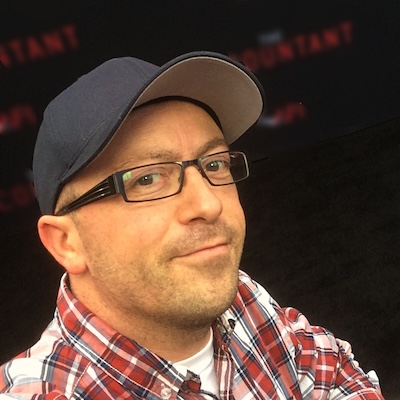“Eddington” Writer/Director Ari Aster on Bringing His Pandemic-Era Neo-Western Thriller Home to New Mexico
Writer/director Ari Aster broke new ground with Eddington in that it’s the first of his films to be shot where it was intended to be set. Both happen to be in his native state of New Mexico, where production created over 300 jobs.
Set in 2020 at the height of the COVID-19 pandemic, the neo-Western satirical black comedy reunites him with his Beau Is Afraid lead, Joaquin Phoenix. The Oscar-winning Joker actor plays a small-town sheriff and mayor locked in a feud with the town’s mayor, played by Pedro Pascal. Eddington‘s ensemble cast also includes Deirdre O’Connell, Emma Stone, Michael Ward, and Luke Grimes.
Here, Aster, who also produced the film and was nominated for the Palme d’Or at this year’s Cannes Film Festival, discusses what he and Phoenix did to present an authentic New Mexico, screening the movie where it was shot, and how 1980s action flicks influenced the explosive finale.
Both you and Joaquin went to New Mexico ahead of filming to scout and for him to get a feel of the community. How did that help?
Before we went out there together, I went out and drove all across the state, went to different counties and talked to different sheriffs, went to small towns, spoke to police chiefs, mayors, public officials, went to Pueblos and talked to people. There were several people that I found very interesting, and served as models for me when I was rewriting the script. I wanted to go out there with Joaquin because there were a few people I had already met that I wanted him to talk to, one of whom I had a strong feeling he would gravitate towards. I tried to leave that to him and not oversell these people, but there was one guy I knew Joaquin was going to like. That turned out to be what happened. We ended up doing a ride-along with him for a day, and we went to his house. I had already spent a considerable amount of time with him, learning about his history, and he had a somewhat contentious relationship with the mayor of the largest town in his county. He and Joaquin got along, and everything from the way Joaquin holds himself, how he walks, and his wardrobe in Eddington was inspired by this guy. He ended up consulting and showing up on set a couple of times. It turned out to be an essential part of the process.
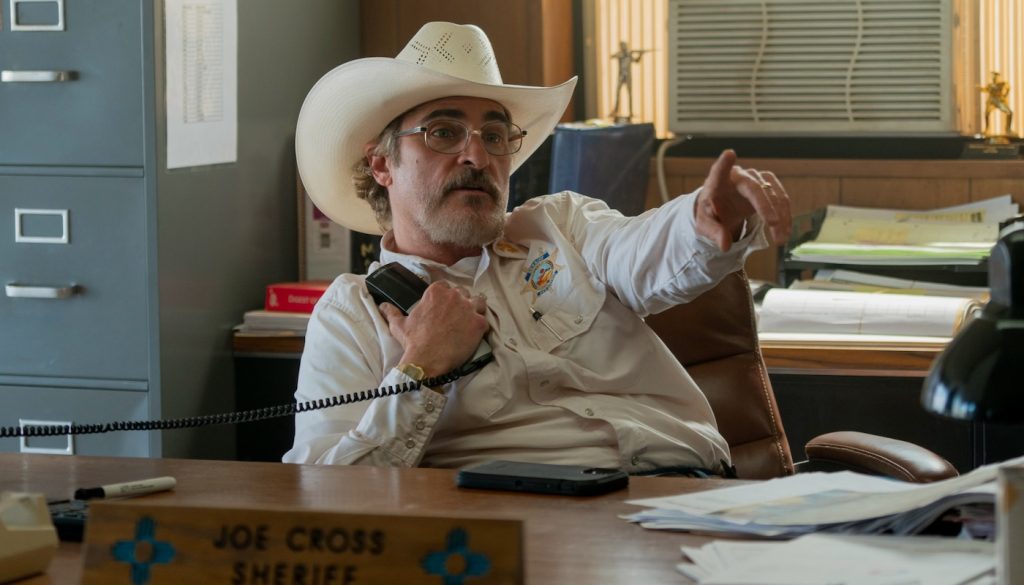
Did that buy the production a lot of good grace, as well as helping with the authenticity?
It was hugely helpful. I’m also from New Mexico. I grew up there, so that helped, too. The film is set in 2020 and depicts the fraught political atmosphere in New Mexico. Eddington works as a microcosm for the country, but it also works as a microcosm for New Mexico itself. It’s a very specific state and I’ve always wanted to make a film set there, because I’ve always felt how fraught the climate has always been. In 2020, that reached a boiling point, and I was very interested in what their experience was during that time. They had stories to tell.
Filming in New Mexico created hundreds of jobs. The production employed over 300 local actors, including crew, principal actors, and background talent—how did that impact the film?
We had an excellent local crew. I prefer to be on location because of budgetary demands, but we don’t always shoot where the film is set. For instance, we didn’t shoot Midsommar in Sweden; we shot that in Hungary. Beau Is Afraid was shot in Montreal, which turned out to be a great place to make a film, but that’s not where the world of Beau Is Afraid exists. It was the same with Hereditary, which wasn’t written to be set in Utah. Eddington was the first time I thought, ‘The film is set in New Mexico and we should be shooting it there.’ It’s also the first time that I’ve worked only on location. The sheriff’s office and Garcia’s bar were abandoned buildings that we had to refortify, or, more accurately, rebuild the interiors from scratch. Otherwise, we were beholden to actual locations. I’m used to building sets for at least some of the locations, and that was a great and challenging experience.
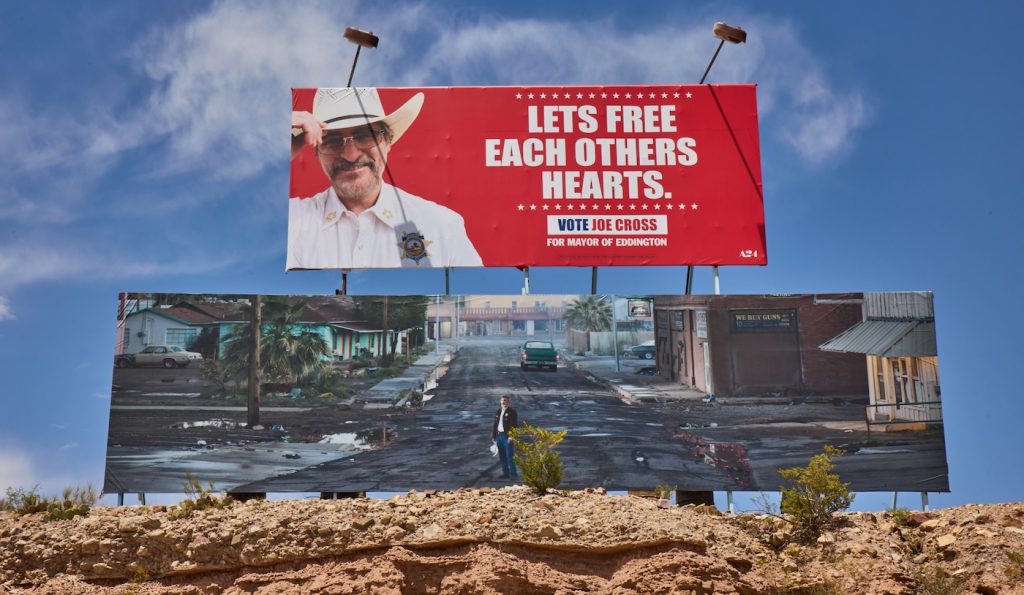
Was a lot of the talent pool you needed to do that available locally?
You bring in the people you need to be the best of the best, so we brought in our production designer, Elliot Hostetter, and Adam Willis, who was the set decorator. A lot of our camera crew came from outside of New Mexico, but most of the other crew was local. That’s also because it’s very expensive to fly people in. You have to put them up the whole way through, so you want to be decisive about who you’re doing that for, especially when you know your budget isn’t huge.
You took the finished film back to one of the towns where you had filmed.
It was important to me to take the film back and screen it for the locals. A part of that was because we shot a lot of the movie in Truth or Consequences. It was a ten-week shoot; we spent four weeks there and loved being there. It’s a really interesting town, and the residents were incredibly generous. We got to do a lot there that we wouldn’t have been able to do in another town, including firing machine guns all night. It felt poetic to revisit the movie and screen it at the local theater.
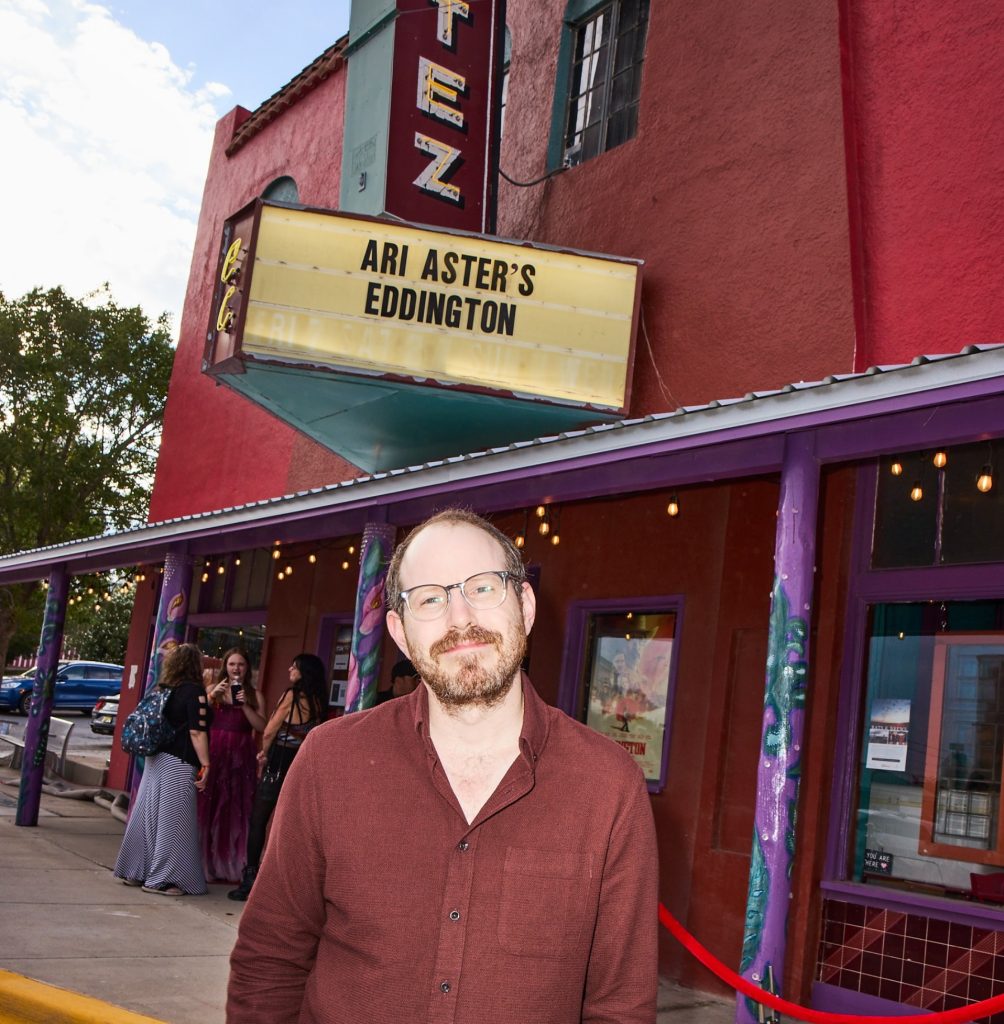
You mention the shoot-out finale. That feels very inspired by the action movies of the 80s, a genre and period of filmmaking that many of today’s filmmakers grew up with. Were there any particular films that inspired you?
It was more about the spirit of those films, but it’s true. Joe Cross, the Joaquin Phoenix character, is 50 years old, and those action movies of the 80s and the 90s would have been very important to him. So, at the end of the film, he gets to live through one. He’s shooting at phantoms, but that was in the language of the film, since this is a movie infused with modern realism. All of these characters are living on the internet, and they would have seen all of these movies, including the more sentimental and romantic Westerns that inform Joaquin’s character’s worldview and his image of himself. You also have younger people for whom video games are more important than movies, and language finds its way into the film as well. It almost becomes like Call of Duty.
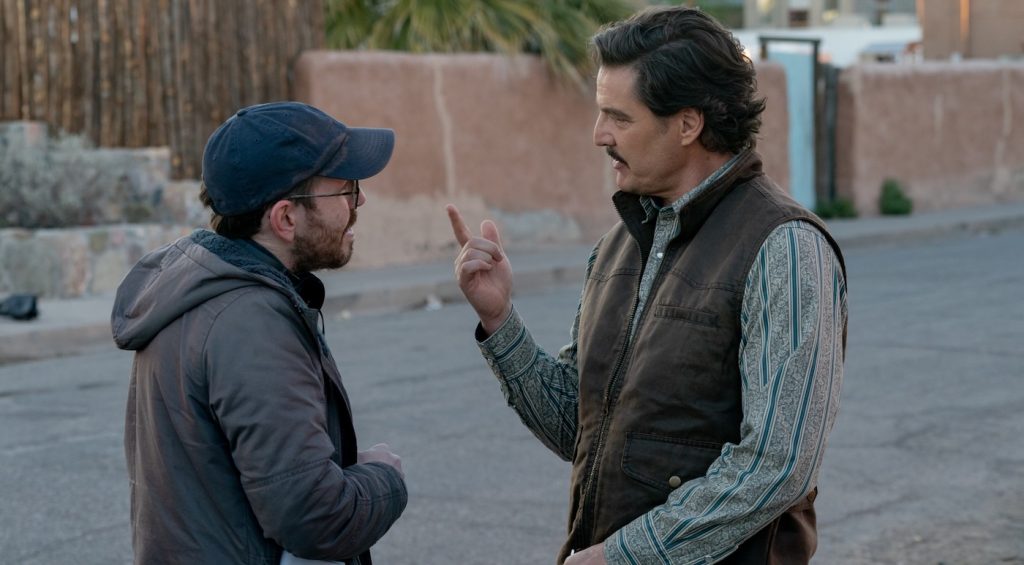
It’s increasingly essential for audiences to support indie films in theaters rather than waiting for streaming. What do you have to say to audiences on that?
It’s hugely important to me. First of all, the movies are finished for the theatrical experience. I spend months in a theater, mixing the sound and utilizing all the speakers to provide you with the most immersive experience possible. That’s just the sound, right? You put so much work into making the film as beautiful as possible, and you want it to be on a big screen. There’s also the communal aspect of the film, and especially a period piece like this, which looks back at a time that we all experienced. If there’s anything hopeful in the movie, it’s that Eddington is about a situation that we’re all still in. Still, hopefully, there can be some solidarity, some strange sauce, in looking back and seeing how we were. Perhaps that’ll allow us to see more clearly where we are, the path we’re on, and whether we’re interested in staying on that path. The film explores the atomization and fracturing of society, where people live in isolated bubbles. I would hate for this to be a film that people only watch in those bubbles, away from each other.
Eddington is in theaters now.
Featured image: L-r: Joaquin Phoenix and Pedro Pascal in “Eddington.” Courtesy A24


